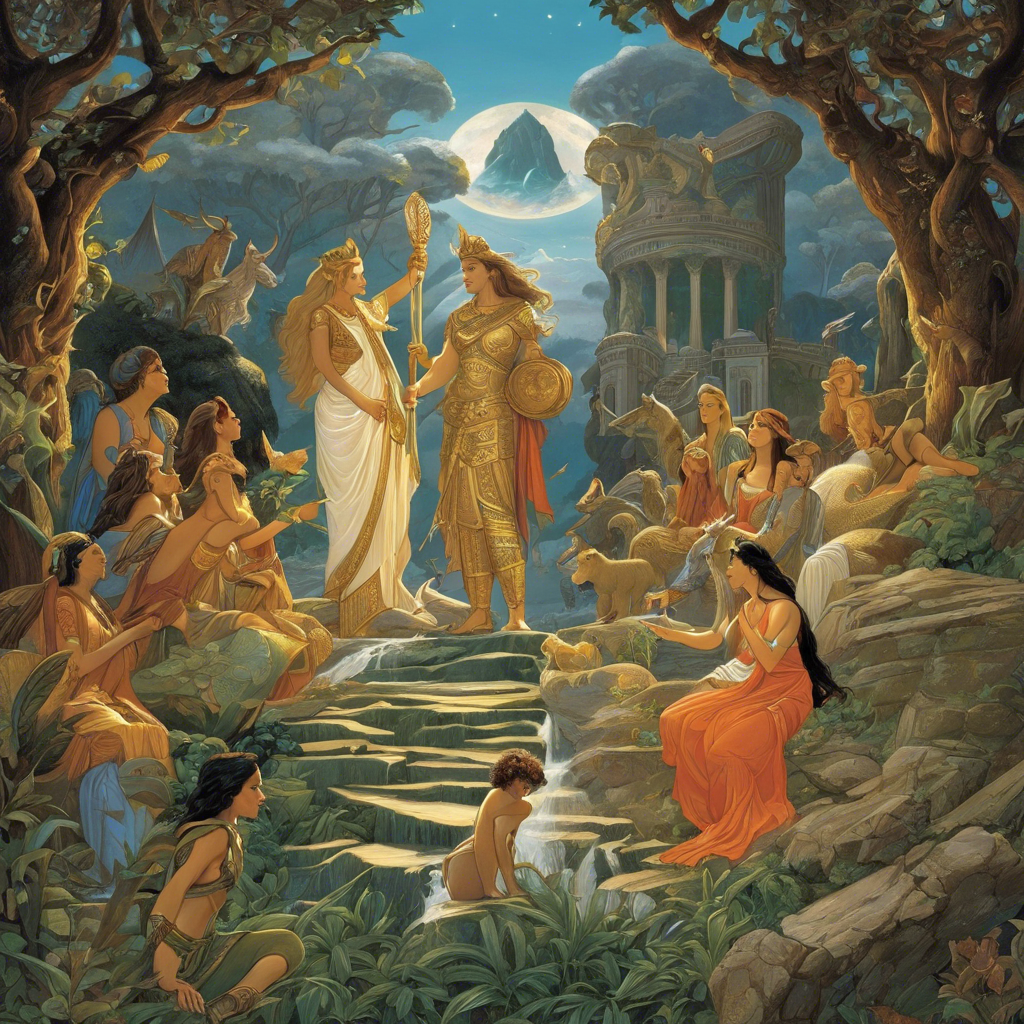Fantasy literature has long been a beloved genre, transporting readers to magical worlds filled with dragons, knights, and enchanted forests. At the heart of these fantastical tales lies a crucial element: mythology. Mythology plays a pivotal role in shaping the landscapes, cultures, and themes explored in fantasy literature, serving as a foundation upon which authors build their imaginative worlds.
The influence of mythology in fantasy literature is profound and far-reaching. It provides a rich tapestry of stories, characters, and symbols that authors can draw upon to create complex and immersive worlds. By incorporating mythical elements, fantasy literature gains a sense of depth and authenticity, inviting readers to explore familiar yet captivating realms. Whether it’s the ancient myths of Greece and Rome, the legends of King Arthur and the Knights of the Round Table, or the vast and intricate mythologies of the East, these stories have left an indelible mark on the fantasy genre.
In works like J.R.R. Tolkien’s *The Lord of the Rings*, the influence of Norse and Germanic mythology is evident in the languages he crafted, the fantastical creatures that populate Middle-earth, and the overarching themes of good versus evil. Similarly, C.S. Lewis’ *The Chronicles of Narnia* draw upon Christian mythology and allegory, creating a world where magic and faith coexist and where characters embark on epic quests that echo biblical narratives.
Mythology also provides a framework for exploring universal themes and the human condition. The struggles between gods and monsters, heroes and villains, often mirror our own internal battles and desires. By delving into these mythical narratives, fantasy literature offers a unique lens through which readers can examine their own lives and the world around them.
Moreover, mythology helps establish a sense of continuity and connection between different works of fantasy literature. Shared mythical references create a sense of familiarity, allowing authors to build upon existing narratives and create intricate webs of interconnected stories. This intertextuality enriches the reading experience, inviting fans to uncover hidden references and easter eggs that pay homage to shared mythological roots.
In addition, mythology often serves as a vehicle for social commentary and exploring complex cultural issues. Authors can use mythical narratives to critique societal norms, question power structures, and shed light on important themes such as gender dynamics, racial inequality, or environmental degradation. By embedding these themes within the context of mythology, fantasy literature becomes a powerful tool for engaging readers in thoughtful examinations of our world.
The appeal of fantasy literature lies not only in its ability to whisk readers away to magical lands, but also in its capacity to explore profound truths about the human experience. Mythology provides a bridge between the fantastical and the familiar, allowing authors to create vibrant, multidimensional worlds that resonate with readers on a deeper level.
With its deep roots in mythology, fantasy literature continues to evolve and captivate audiences of all ages. The enduring appeal of dragons, fairies, and magical quests speaks to our innate desire for wonder and escapism. However, it is the nuanced exploration of human nature, good and evil, and the enduring power of hope and courage that truly sets the genre apart.
Through the lens of mythology, fantasy literature reflects our shared history, dreams, and aspirations. It invites us to embrace our imagination, question our world, and discover new perspectives. In doing so, it fosters a deeper understanding and appreciation of our own reality, even as we journey through fantastical realms.
As fantasy literature continues to evolve, drawing from a rich wellspring of mythological inspiration, it promises to continue enchanting readers for generations to come. The fusion of ancient myths with modern storytelling techniques ensures that the genre remains vibrant and relevant, forever capturing the hearts and imaginations of readers young and old.
